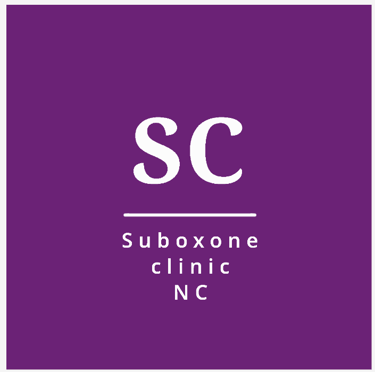The Comprehensive Guide to Finding Effective Suboxone Treatment Near Me
Introduction
Opioid addiction is a severe and pervasive health crisis affecting millions globally. The devastating impact of this addiction extends beyond the individual, influencing families, communities, and the broader society. One of the most effective treatments for opioid addiction is Suboxone, a medication-assisted therapy (MAT) that combines buprenorphine and naloxone to help individuals overcome their dependency on opioids. This guide aims to provide a thorough understanding of Suboxone treatment, its benefits, and how to find the best "Suboxone treatment near me" to ensure a successful recovery journey.
Understanding Suboxone and Its Role in Opioid Addiction Treatment
Suboxone is a prescription medication specifically designed to treat opioid addiction. It contains two active ingredients: buprenorphine and naloxone. Buprenorphine is a partial opioid agonist, which means it produces a milder form of the effects of opioids to help alleviate withdrawal symptoms and cravings without providing the euphoric high associated with opioid abuse. Naloxone, on the other hand, is an opioid antagonist that blocks the effects of opioids, reducing the potential for misuse.
Benefits of Suboxone Treatment
Reduces Cravings and Withdrawal Symptoms: Suboxone helps manage the intense cravings and withdrawal symptoms that often lead to relapse in individuals attempting to quit opioids.
Lower Risk of Abuse: The inclusion of naloxone in Suboxone reduces the potential for misuse, making it a safer option for long-term treatment.
Improves Treatment Retention: Studies have shown that individuals on Suboxone treatment are more likely to stay in treatment programs longer, increasing their chances of successful recovery.
Enhances Quality of Life: By stabilizing the individual’s condition, Suboxone allows them to focus on rebuilding their lives, including improving relationships, finding employment, and achieving overall well-being.
Finding the Right Suboxone Treatment Near Me
1. Start with a Comprehensive Search
The first step in finding the right Suboxone treatment is conducting a thorough search using the keyword "Suboxone treatment near me." Utilize search engines, local directories, and specialized addiction treatment websites to compile a list of potential clinics and healthcare providers.
2. Evaluate Credentials and Accreditation
Ensure that the treatment centers or clinics you consider are accredited and have the necessary certifications. Accreditation from organizations such as the Commission on Accreditation of Rehabilitation Facilities (CARF) or the Joint Commission indicates that the facility meets high standards of care.
3. Check the Qualifications of Healthcare Providers
Verify that the healthcare providers at the facility are licensed and have specific training and experience in addiction medicine. Look for doctors certified by the American Board of Addiction Medicine (ABAM) or similar credentials.
4. Assess the Treatment Approach
Different clinics may adopt various treatment approaches. Ensure that the clinic you choose offers a comprehensive treatment plan that includes:
Medical Assessment and Monitoring: Regular check-ups and monitoring to adjust the treatment plan as needed.
Counseling and Behavioral Therapy: Individual and group therapy sessions to address the psychological aspects of addiction.
Support Services: Access to support groups, case management, and other resources to support long-term recovery.
5. Consider the Location and Accessibility
Choose a treatment center that is conveniently located and easily accessible. This will make it easier to attend regular appointments and stay committed to the treatment plan.
6. Read Reviews and Testimonials
Look for reviews and testimonials from former patients. These can provide valuable insights into the quality of care and the overall experience at the clinic.
7. Contact the Clinic Directly
Reach out to the clinics on your shortlist to ask questions and gather more information. This will also give you a sense of their customer service and how they handle inquiries.
What to Expect During Suboxone Treatment
Initial Assessment
Upon enrolling in a Suboxone treatment program, you will undergo a comprehensive medical and psychological assessment. This evaluation helps the healthcare provider develop a personalized treatment plan tailored to your specific needs.
Induction Phase
The induction phase is the initial stage of Suboxone treatment, where you start taking the medication under medical supervision. The goal is to find the right dose that effectively reduces withdrawal symptoms and cravings without causing significant side effects.
Stabilization Phase
During the stabilization phase, your healthcare provider will adjust the dosage as needed to ensure optimal effectiveness. This phase involves regular follow-up visits to monitor your progress and make any necessary adjustments to your treatment plan.
Maintenance Phase
Once you achieve a stable dose, you enter the maintenance phase. During this phase, you continue taking Suboxone while participating in counseling and behavioral therapy. The focus is on maintaining sobriety and addressing any underlying psychological or emotional issues contributing to your addiction.
Tapering and Discontinuation
Over time, your healthcare provider may gradually reduce your Suboxone dose as you progress in your recovery. The goal is to eventually taper off the medication completely, though some individuals may require long-term maintenance.
The Importance of Comprehensive Care in Suboxone Treatment
Effective Suboxone treatment goes beyond just medication. Comprehensive care, including counseling, behavioral therapy, and support services, is essential for addressing the multifaceted nature of addiction.
Counseling and Behavioral Therapy
Individual Therapy: One-on-one sessions with a therapist to explore the underlying causes of addiction and develop coping strategies.
Group Therapy: Supportive group sessions where individuals can share their experiences and gain insights from others in similar situations.
Family Therapy: Involving family members in the treatment process to address any relational issues and foster a supportive home environment.
Support Services
Support Groups: Participation in support groups such as Narcotics Anonymous (NA) provides a community of peers who understand the challenges of addiction and recovery.
Case Management: Assistance with navigating healthcare, legal, and social services to support overall well-being and recovery.
Aftercare Planning: Developing a long-term plan to maintain sobriety and prevent relapse after completing the initial treatment program.
Addressing Common Concerns and Misconceptions about Suboxone Treatment
Myth: Suboxone is Just Another Form of Opioid
While Suboxone does contain buprenorphine, a partial opioid agonist, it is specifically designed to treat opioid addiction by reducing cravings and withdrawal symptoms without producing the intense euphoria associated with full opioids.
Myth: Suboxone Treatment is Trading One Addiction for Another
Suboxone is part of a structured treatment program under medical supervision. The goal is to stabilize the individual and gradually taper off the medication, not to replace one addiction with another.
Concern: Long-term Use of Suboxone
Some individuals may require long-term maintenance on Suboxone. This is a legitimate treatment approach for those who need ongoing support to prevent relapse and maintain stability.
Concern: Side Effects of Suboxone
Like any medication, Suboxone can cause side effects, including nausea, headaches, and constipation. However, these are generally mild and manageable under medical supervision.
The Role of Family and Community Support in Suboxone Treatment
Recovery from opioid addiction is a challenging journey that benefits significantly from strong family and community support. Involving loved ones in the treatment process can provide emotional support, improve communication, and foster a supportive environment conducive to recovery.
How Families Can Support Recovery
Education: Learn about opioid addiction and Suboxone treatment to understand what your loved one is going through.
Communication: Maintain open and honest communication, expressing support and concern without judgment.
Encouragement: Encourage participation in counseling, therapy, and support groups.
Boundaries: Establish healthy boundaries to protect your own well-being while supporting your loved one’s recovery.
Community Resources
Support Groups: Local support groups can provide a sense of community and shared experience.
Community Programs: Many communities offer resources such as job training, housing assistance, and educational programs to support individuals in recovery.
Healthcare Services: Access to comprehensive healthcare services, including mental health care, is crucial for addressing the broader health needs of individuals in recovery.
Conclusion
Suboxone treatment offers a highly effective, evidence-based approach to overcoming opioid addiction. By managing cravings and withdrawal symptoms, it provides individuals with the stability they need to focus on their recovery journey. Finding the right "Suboxone treatment near me" involves careful research, evaluation of credentials, and consideration of comprehensive care options. With the right support and resources, individuals struggling with opioid addiction can achieve lasting recovery and reclaim their lives.
In summary, Suboxone treatment is a vital component of a holistic approach to opioid addiction. By integrating medication with counseling, behavioral therapy, and robust support systems, individuals can navigate the path to recovery with greater confidence and resilience. For those seeking "Suboxone treatment near me," it’s essential to find a clinic that offers accredited, comprehensive care tailored to individual needs, ensuring the best possible outcome in the journey towards a healthier, addiction-free life.


